10 Best Herbal Lotions For Inflammation
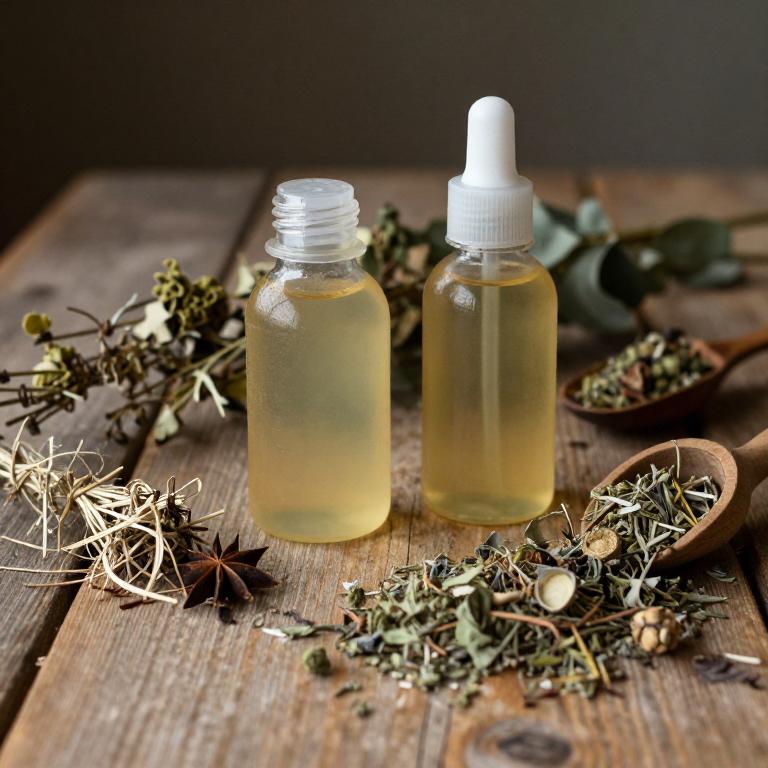
Herbal lotions are natural topical treatments that contain plant-based ingredients known for their anti-inflammatory properties.
These lotions often include herbs such as aloe vera, chamomile, calendula, and turmeric, which have been traditionally used to soothe irritated skin and reduce redness. The anti-inflammatory compounds in these herbs can help alleviate symptoms of conditions like eczema, psoriasis, and minor burns. When applied directly to the skin, herbal lotions provide a gentle and effective alternative to synthetic corticosteroids.
However, it is important to consult with a healthcare professional before using herbal lotions, especially if you have sensitive skin or are using them for chronic inflammatory conditions.
Table of Contents
- 1. St. john's wort (Hypericum perforatum)
- 2. Stinging nettle (Urtica dioica)
- 3. Blessed thistle (Cnicus benedictus)
- 4. Salvia (Salvia officinalis)
- 5. Aloe vera (Aloe barbadensis)
- 6. Yarrow (Achillea millefolium)
- 7. Turmeric (Curcuma longa)
- 8. Ginger (Zingiber officinale)
- 9. Dog rose (Rosa canina)
- 10. English lavender (Lavandula angustifolia)
1. St. john's wort (Hypericum perforatum)

Hypericum perforatum, commonly known as St. John's wort, is a herbal plant that has been traditionally used for its anti-inflammatory properties.
Herbal lotions made from Hypericum perforatum are often applied topically to reduce inflammation and soothe skin irritations such as eczema, psoriasis, and minor burns. These lotions contain bioactive compounds like hypericin and flavonoids, which are believed to possess anti-inflammatory and antioxidant effects. The soothing properties of St. John's wort lotion can help alleviate redness, swelling, and discomfort associated with inflammatory skin conditions.
However, it is important to consult a healthcare provider before use, especially if you are on medications, due to potential interactions.
2. Stinging nettle (Urtica dioica)

Urtica dioica, commonly known as stinging nettle, has been traditionally used in herbal medicine for its anti-inflammatory properties.
When formulated into a lotion, it can provide a soothing effect on inflamed skin, such as that caused by eczema, psoriasis, or insect bites. The active compounds in stinging nettle, including histamine, serotonin, and flavonoids, contribute to its ability to reduce redness and swelling. Herbal lotions made from Urtica dioica are often applied topically to target localized inflammation and promote skin healing.
However, it is important to perform a patch test before use, as some individuals may experience an allergic reaction to the plant's natural stinging properties.
3. Blessed thistle (Cnicus benedictus)

Cnicus benedictus, also known as blessed knapweed, is a traditional herbal plant that has been used for its anti-inflammatory properties.
Herbal lotions made from Cnicus benedictus are often applied topically to reduce swelling and redness in conditions such as arthritis, muscle pain, and skin irritations. The plant contains compounds like flavonoids and tannins, which are believed to contribute to its soothing and healing effects. These lotions are typically prepared by infusing the dried plant material in a carrier oil or water, making them easy to apply directly to the affected area.
Due to its natural composition, Cnicus benedictus herbal lotion is considered a gentle and effective alternative for those seeking natural remedies for inflammation.
4. Salvia (Salvia officinalis)
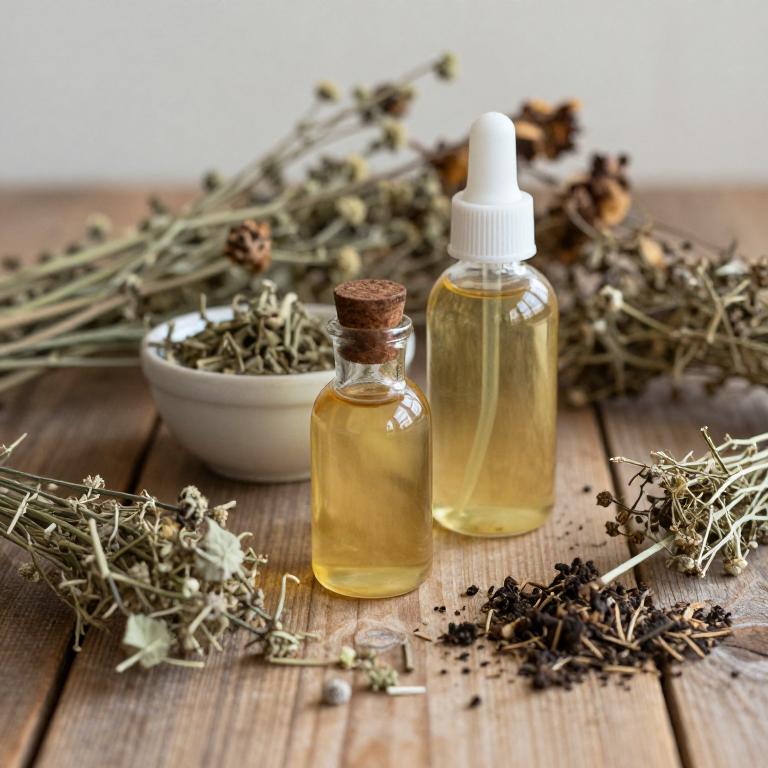
Salvia officinalis, commonly known as sage, is a versatile herb that has been traditionally used for its anti-inflammatory properties.
Herbal lotions containing salvia officinalis are often formulated to soothe skin irritations, reduce redness, and alleviate symptoms of conditions like eczema and psoriasis. The active compounds in sage, such as rosmarinic acid and flavonoids, contribute to its ability to reduce inflammation by inhibiting inflammatory pathways in the body. These lotions are typically applied topically, providing a natural and soothing alternative to conventional anti-inflammatory treatments.
Due to its calming and healing effects, salvia officinalis herbal lotion is a popular choice for those seeking holistic approaches to managing skin inflammation.
5. Aloe vera (Aloe barbadensis)
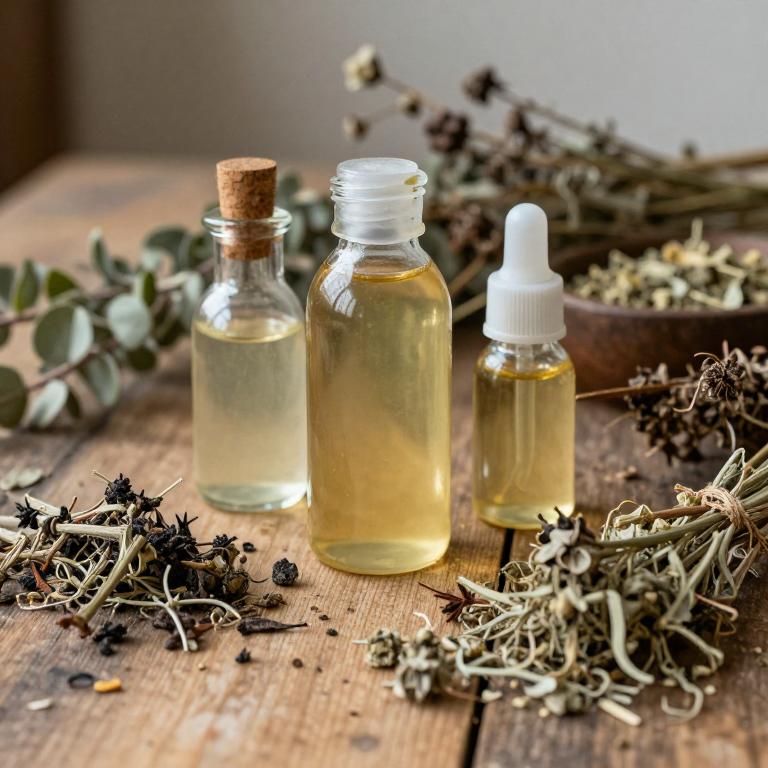
Aloe barbadensis, commonly known as aloe vera, is widely used in herbal lotions for its soothing and anti-inflammatory properties.
These lotions often contain the gel extracted from the aloe plant, which is rich in antioxidants, vitamins, and minerals that help reduce skin irritation and inflammation. The anti-inflammatory effects of aloe vera are attributed to its ability to modulate the immune response and reduce the production of inflammatory cytokines. When applied topically, aloe-based lotions can provide relief for conditions such as eczema, psoriasis, and sunburn.
Due to its natural and gentle formulation, aloe barbadensis herbal lotions are often recommended for sensitive skin and as a complementary therapy for chronic inflammatory skin conditions.
6. Yarrow (Achillea millefolium)
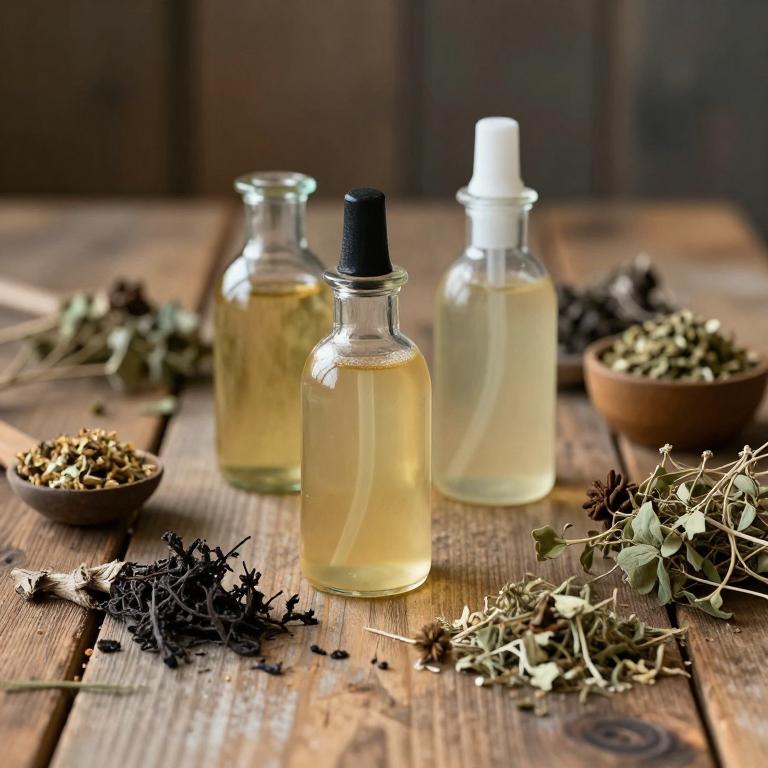
Achillea millefolium, commonly known as yarrow, has been traditionally used for its anti-inflammatory properties, making it a popular ingredient in herbal lotions.
These lotions are often formulated to soothe skin irritations, reduce redness, and alleviate symptoms of conditions like eczema or insect bites. The active compounds in yarrow, such as flavonoids and essential oils, contribute to its ability to reduce inflammation and promote healing. When applied topically, yarrow-based lotions can provide a natural alternative to conventional anti-inflammatory treatments.
However, it is important to perform a patch test and consult a healthcare professional, especially for those with sensitive skin or existing medical conditions.
7. Turmeric (Curcuma longa)
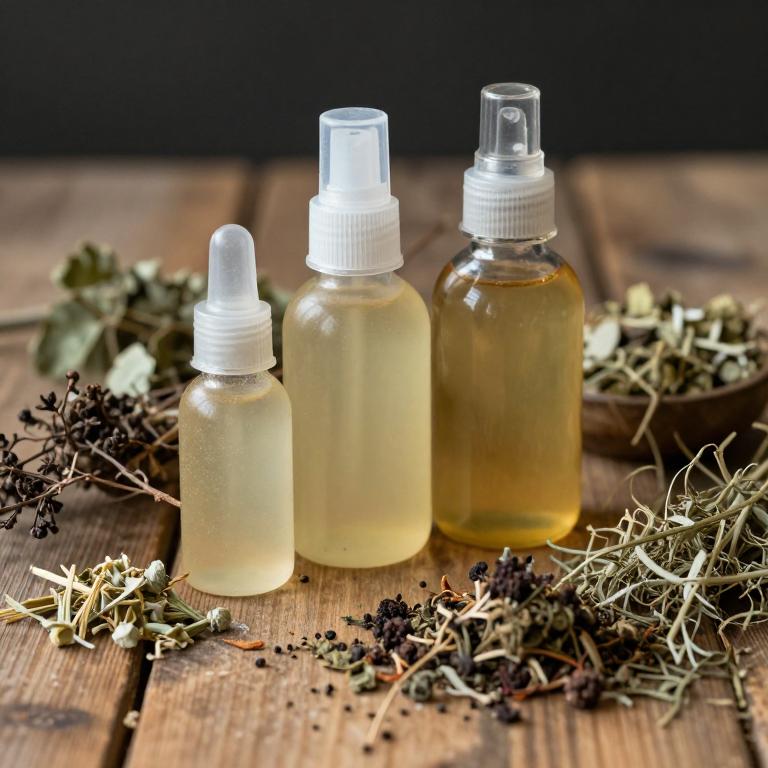
Curcuma longa, commonly known as turmeric, is a popular herbal remedy known for its anti-inflammatory properties.
Turmeric-based herbal lotions are often used topically to alleviate symptoms of inflammation, such as redness, swelling, and pain in conditions like arthritis or muscle injuries. These lotions typically contain curcumin, the active compound responsible for many of turmeric's therapeutic effects. The anti-inflammatory and antioxidant properties of curcumin help reduce oxidative stress and promote tissue healing.
When applied regularly, turmeric lotions may offer a natural and effective alternative for managing chronic inflammation.
8. Ginger (Zingiber officinale)

Zingiber officinale, commonly known as ginger, has been traditionally used for its anti-inflammatory properties, and ginger-based herbal lotions are increasingly being used to alleviate inflammation in the skin and joints.
These lotions typically contain extracts of fresh or dried ginger root, which are rich in bioactive compounds such as gingerol and shogaol, known for their potent anti-inflammatory and analgesic effects. When applied topically, ginger herbal lotions can help reduce redness, swelling, and pain associated with conditions like arthritis, eczema, and muscle strains. They are often preferred as a natural alternative to synthetic anti-inflammatory medications, offering a gentler and holistic approach to managing inflammation.
However, individuals with sensitive skin should perform a patch test before using these lotions to avoid potential irritation.
9. Dog rose (Rosa canina)
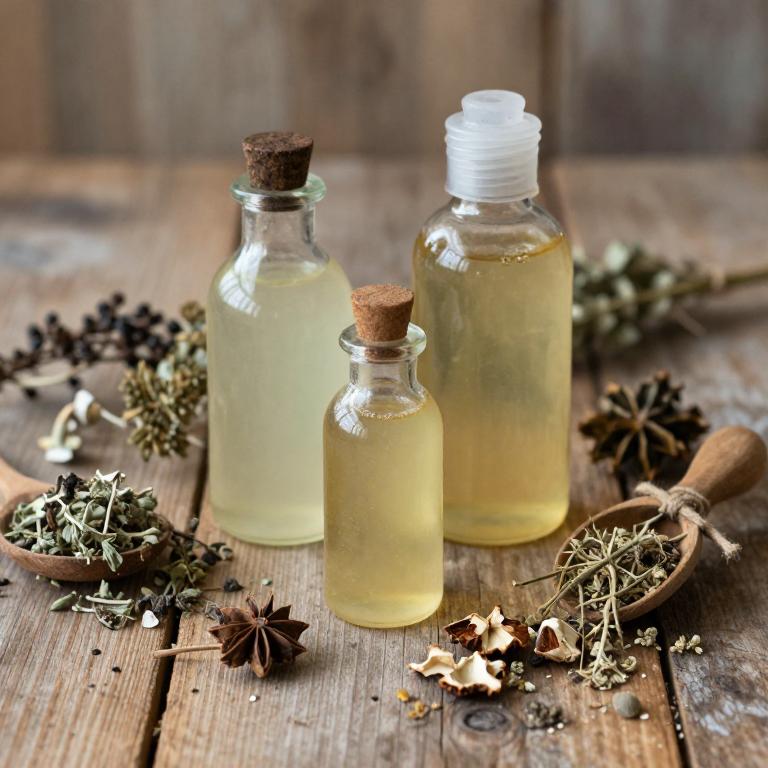
Rosa canina, commonly known as rosehip, is a natural ingredient widely used in herbal lotions for its anti-inflammatory properties.
These lotions are formulated to reduce swelling and redness in the skin, making them beneficial for conditions like eczema, psoriasis, and minor skin irritations. The active compounds in rosehip, such as omega-3 fatty acids and antioxidants, help soothe inflamed tissues and promote skin healing. Rosa canina herbal lotions are often preferred for their gentle, plant-based formulation that is suitable for sensitive skin.
Regular use of these lotions can lead to improved skin texture and a reduction in inflammatory symptoms over time.
10. English lavender (Lavandula angustifolia)
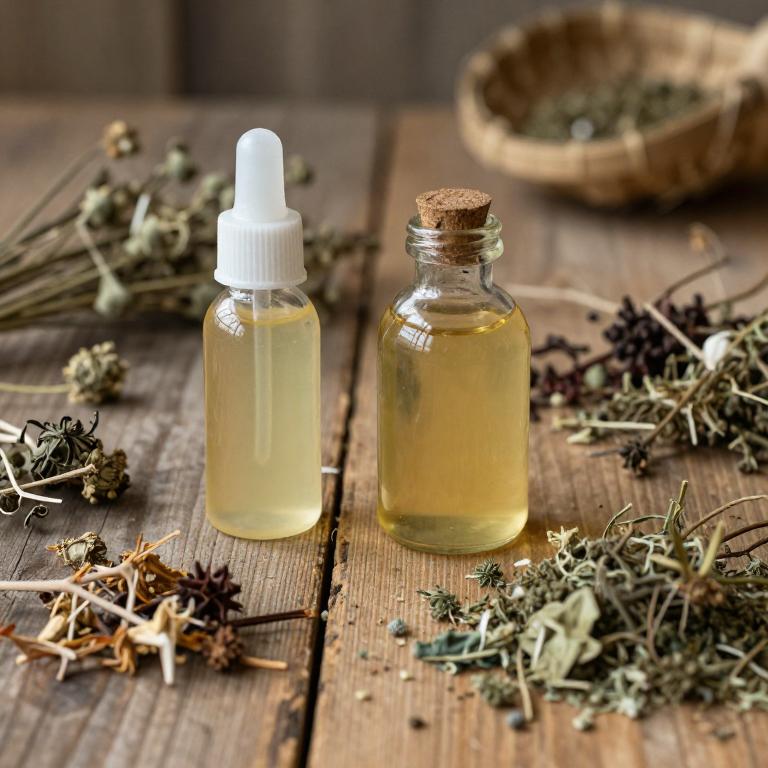
Lavandula angustifolia, commonly known as English lavender, is widely used in herbal lotions for its anti-inflammatory properties.
These lotions often contain essential oils extracted from the plant, which have been shown to reduce redness, swelling, and irritation in inflamed skin. The soothing aroma of lavender also helps to calm the mind, making it a beneficial addition to topical treatments for conditions like eczema or minor burns. Regular application of lavender-infused lotions can provide relief from inflammation while promoting skin healing.
Due to its natural and gentle formulation, lavender herbal lotions are a popular choice for those seeking a holistic approach to managing skin inflammation.